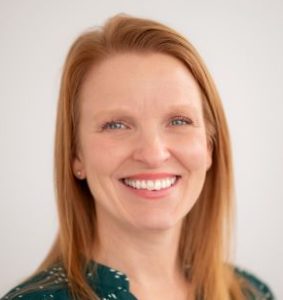
In times of crisis, we put women and children first.
Except for women and children in congregate care settings, and the (mostly) women who care for them the world over.
The elderly and the infirm remain largely invisible when war encroaches, a carryover from everyday life. For most of us, it’s too painful to think of those for whom an arduous trek across snow-covered, bombed-out roads is an impossibility. Of those who might not even have the opportunity to become refugees in a new land. Of those whose fate rests solely with their Ukrainian caregivers, who have families and lives of their own to consider.
And so, as the world around them collapses, thousands of Ukraine’s most vulnerable hunker down or sit and wait for rescue. Many don’t understand what’s happening around them, except for the torment of the bombs, the lack of power and heat, the changes in routine and meals.
The choices their caregivers must make are unfathomable, as are the few images that have emerged from behind the front lines.
Two weeks ago, a CNN crew captured a group of elderly female residents being evacuated from a nursing home outside of Kyiv. They were huddled outside in wheelchairs draped with thick blankets, trying to leave town on what appeared to be school buses after days without heat in their facility. As shelling was heard in the background, Ukrainian caregivers flitted about trying to keep ambulatory but clearly confused residents together.
“I want to lie down,” a woman named Valentina told a correspondent, the quiet resignation in her voice simply heartbreaking. “Please help me.” She was later seen resting on the floor of a bus, which didn’t have adequate space for wheelchairs.
In war, those who stay behind do what they can with what they have. Scenes demonstrating that are commonplace in Ukraine now.
Then, there are the reports of outright atrocities: Seniors being killed in clearly marked civilian evacuation shelters, family caregivers murdered by snipers while scrounging for food and medicine, a nursing home targeted by Russian tanks. In a story yet to be widely reported by international media, some 56 residents are believed to have been killed in that attack in Kreminna. Others were allegedly taken hostage.
I don’t have an answer for how we help such people when further international action may unleash madness on the rest of the world. But my plea is that we not look away.
For my family, there is a through-line here. Both of my husband’s grandparents were born and raised in Ukraine. We practice Ukrainian traditions during the holidays, and even I know a few key phrases from the homeland.
My husband’s grandmother, long-time maker of the borscht and keeper of the flame, is alive at 94 and now a nursing home resident. Had her family not been scared out of Europe decades ago, she could be Valentina.
And during pandemic-era lockdowns, she almost was. There were times we could feel the same weariness in her voice, when we sensed she was thinking about giving up amid such hardship.
Though we weren’t at war in any geopolitical sense, the battle against COVID-19 was no less intense in nursing homes across the country. Constant confusion and the fear of inevitable death were very real, especially in early months. We know staff left to protect themselves or care for their families. We know those who stayed made impossible decisions and made do with whatever resources they could gather day-in and day-out.
Our government’s eventual ability to get supplies to those who needed them, to learn and teach about the virus, and to help begin a return to normalcy made a real difference in our nation’s rebound.
Neither fleeing Ukranians nor those left behind may ever know normalcy again. While we wait to see if their government will survive, it is our job to keep our hearts open and to be sure that others do, too.
Serving as a lifeline during war seems a deeply unenviable task to many of us. But as we’ve seen through the pandemic — and as we’ll continue to see in Ukraine — caregivers can lift the hopes of a nation by being who they are and doing what they do.
Don’t look away.
Kimberly Marselas is senior editor of McKnight’s Long-Term Care News.
Opinions expressed in McKnight’s Long-Term Care News columns are not necessarily those of McKnight’s.



